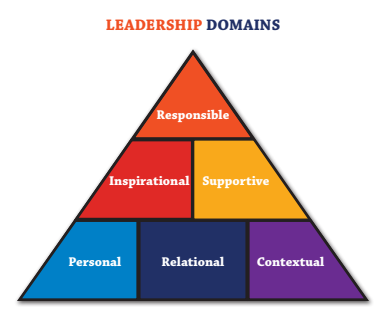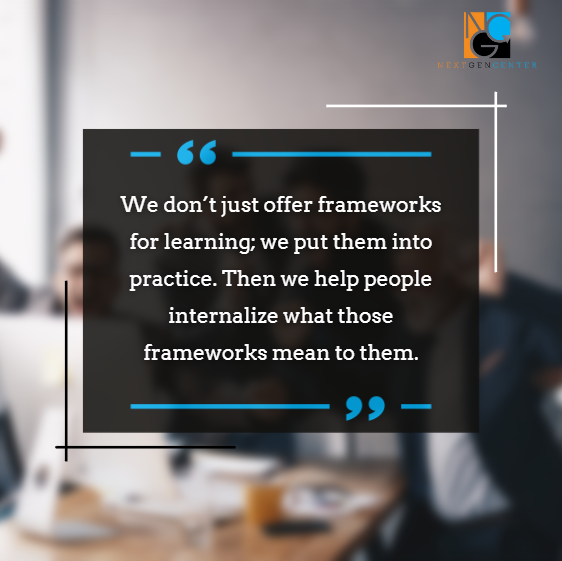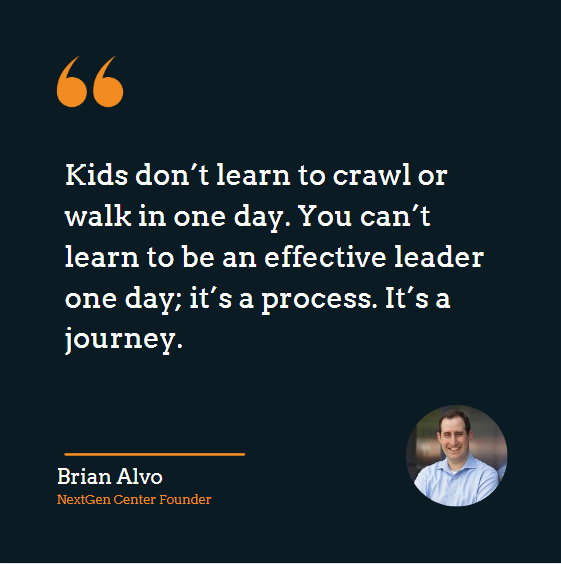What to Expect from a Leadership Development Program
What is a leadership development program?
When people think about leadership development programs, they have to answer one fundamental question: “What do I want to walk away from this program with?”
Or, “Who do I want to become after the program compared to who I am right now?” This is a question I ask people in our Foundation for Leadership Training Program. It’s a difficult question to answer. Once you figure out what you’re working towards, choose a program that best suits those needs.
What skills can you gain from a leadership training or development program?
It depends on the program, but the most important capability for leaders to develop is self-awareness. Any program you sign up for should help foster your self-awareness. How that happens can come in many forms.
How Leadership Programs Foster Self-Awareness
# 1 Academic Modeling, Research, and Frameworks
One form is through traditional academic models, research, and frameworks. Leadership training participants may undergo an assessment to understand their skills better. Next, they are given a framework based on that assessment to develop their skills in the direction they want to grow.
Six Domains of Leadership
For example, one of the frameworks I use is the Six Domains of Leadership. It was developed by Duke Professors Dr. Sim Sitkin and Dr. Allan Lind. It has six parts:
Personal: Enhance and project your leadership capability. Be authentic and demonstrate dedication.
Relational: Show that you respect and understand your team. Show you are sincerely concerned about their best interests. Manage (influence) your boss, peers, and direct reports.
Contextual: Build team identity and purpose. Clarify your team mission, roles, and organizational practices.
Inspirational: Cultivate a team mindset for excellence and innovation. Be enthusiastic and optimistic. Encourage thoughtful risk-taking.
Supportive: Protect your people from political minefields. Secure needed resources. Give feedback rather than assign blame.
Responsible: Take responsibility as a leader. Model ethical action. Strive for balance.
Source: Sitkin-Lind Six Domains of Leadership model
Using the Six Domains of Leadership survey, you conduct a self-assessment and then ask people familiar with your leadership to assess you. Based on those results, you are provided a report that measures your effectiveness in a specific area of leadership.
For instance, one domain is inspirational leadership. Your feedback gives you a sense of how effectively you inspire as a leader. If the data reveals that you score higher on the ‘inspirational domain,’ you can build further on the skills you already have.
If you score lower, you can ask yourself, What specific behaviors or things can I do to improve?
Most leadership training approaches include an assessment. What makes NextGen Center different is that we take a multi-pronged approach to account for the different ways each person learns.
#2 Skill- and Application-Based Program
Brian Alvo: Academic models and frameworks are helpful because they are well-researched, offering a means to measure your skills against these norms. In comparison, the Foundation for Effective Leadership and our coaching programs hone in on what people do in their day-to-day behavior. We consider, “What does this person actually do in practice?”
In short, we’re an application-based program. We look at the skills that make for an effective leader and practice those skills to help the person grow. That way, they can integrate those behaviors into their everyday experience.
Why Application and Practice Matters:
Let’s say I’m an individual contributor and get promoted to a role where I have direct reports. I developed my skills and approach as an individual contributor over many years of practice, but now I’m faced with a new situation. How will I effectively lead others in addition to leading myself?
In learning to lead and manage others for the first time, I need to develop new skill sets — especially on the relationship-building side, and will learn a lot about myself in the process.
For example, I’ll learn:
What are my fears or biggest concerns with others reporting to me?
What do I like (or dislike) about my new role vs. my previous role?
How do I engage with my team? How do I ‘show up’ every day? In each meeting? With each person?
Where do I feel confident, and where do I not? What environments and conditions make me feel confident and what doesn’t?
What’s the best way for me to learn? Who can I get to help me?
So, in our programs, when we learn and practice a relational skill set, participants learn strategies to improve, but it’s in doing the practice that they learn the most about themselves.
For instance, when I tell participants that they have to listen and can’t interrupt for two minutes, I can see participants cycling through all the things they want to ask the person they’re practicing with. Their impulses and habits bubble up. That shows they’re uncomfortable waiting their turn to speak or listening without interrupting.
This is one way you can learn about yourself and also practice a skill (in this case, how to listen more effectively).
The NextGen Center Foundation for Effective Leadership is a skill-based program.
We don’t just offer frameworks for learning; we put them into practice. Then we help people internalize what those frameworks mean to them.
How is NextGen Center different from other leadership programs?
Program Length
Brian Alvo: We space out our leadership program over 3-5 months. You learn a new skill, practice it, and then integrate it into your day-to-day life. Then you come back, build on that skill set, and add another.
Many available programs are a few days long or have shortened timelines and attempt to cram a lot of information into participants’ heads without supporting their ongoing learning.
But we don’t learn that way. Kids don’t learn to crawl or walk in one day. You can’t learn to be an effective leader one day; it’s a process. It’s a journey.
Going back to the question, “Who do I want to become?” Doing an internal exercise for two to three hours daily can be helpful, but long-term behavioral shifts are incremental. Leadership is a lifetime journey, and progress happens through practice.
Transform How You Lead
Ready to heighten your self-awareness and leadership skills? Learn more about the Foundation for Effective Leadership Program.



